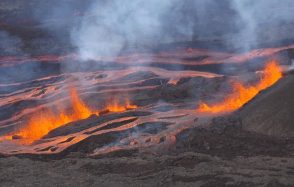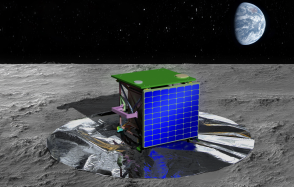New insight into the origin of the Moon’s depletion of volatile elements
The Moon's arid surface, devoid of liquid water and subject to extreme temperature variations, has long intrigued observers. These characteristics indicate a marked lack of volatile elements, such as water and certain gases. Recent work by doctoral student Wei Dai, under the supervision of Frédéric Moynier, and their CNRS colleagues in the CAGE (Cosmochemistry, Astrophysics and Experimental Geophysics) team at the Paris Institut de Physique du Globe (CNRS/IPGP/Université Paris Cité), has provided some clues as to the origin of this depletion, while confirming a degree of chemical homogeneity on a lunar scale. These results were published on 28 May in the journal PNAS.

Lunar meteorite sample
Publication date: 28/05/2025
Research
Related teams :
Cosmochemistry, Astrophysics and Experimental Geophysics (CAGE)








